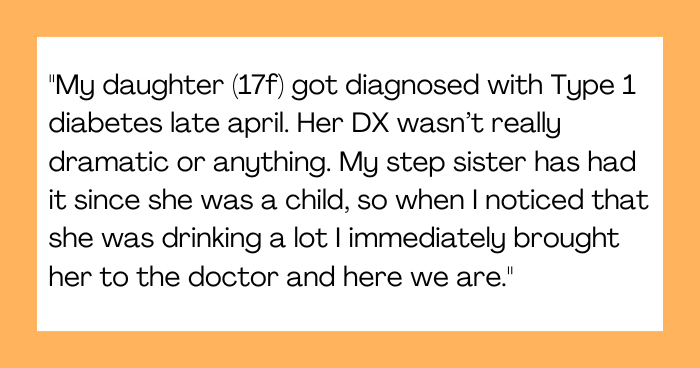Mom Says Daughter’s Illness Doesn’t Excuse Neglecting Chores, Sparks Online Debate
Adjusting to helping a teenager like her navigate both a new chronic illness — in this case, Type 1 diabetes — while also balancing the act of support with responsibility can be quite a juggling act. For this solo-mama, balancing her kid’s diagnosis, household, and finances has proven to be extremely difficult. When her 17-year-old daughter refused to help anymore with household chores—after all, her daughter had wanted to adopt the animals—things became intolerable.
A mum has found herself questioning whether she went a bit too far after she confronted her daughter and warned her that if she didn’t do better with the pets, they’d be getting rehomed. Although she understands her daughter is going through a lot of emotions and the changes of living with diabetes, she believes the family has a right to speak up about how their daughter not taking action has affected them.
Having both pets and kids can be a lot of work

But one single mom ended up in conflict with her teenage daughter after being more strict about her chores
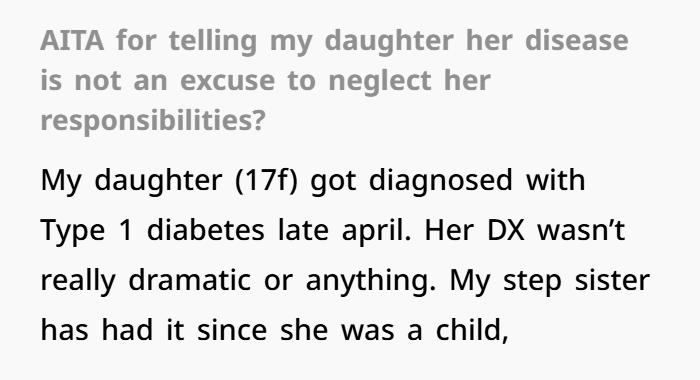
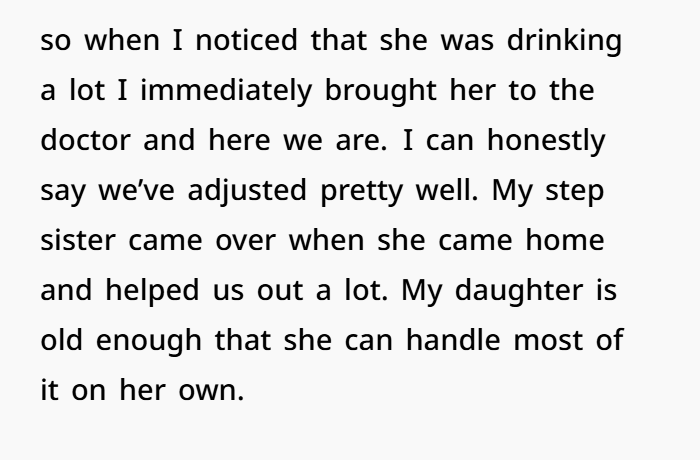
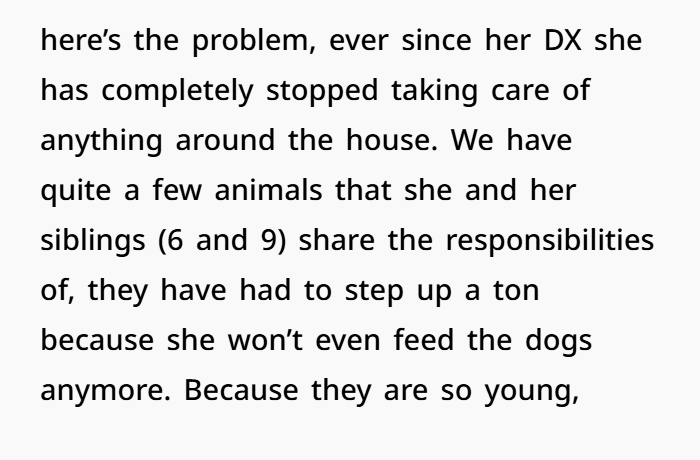
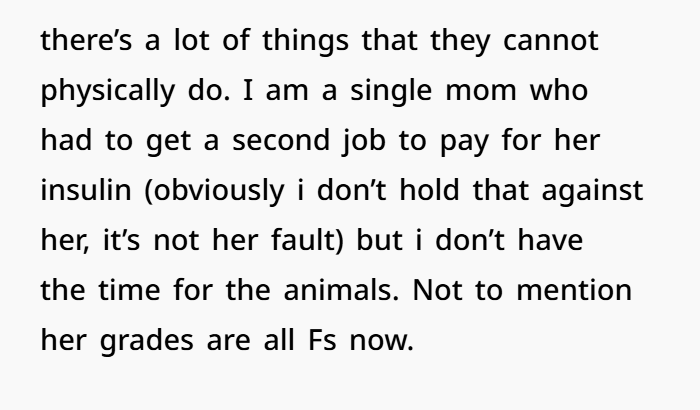
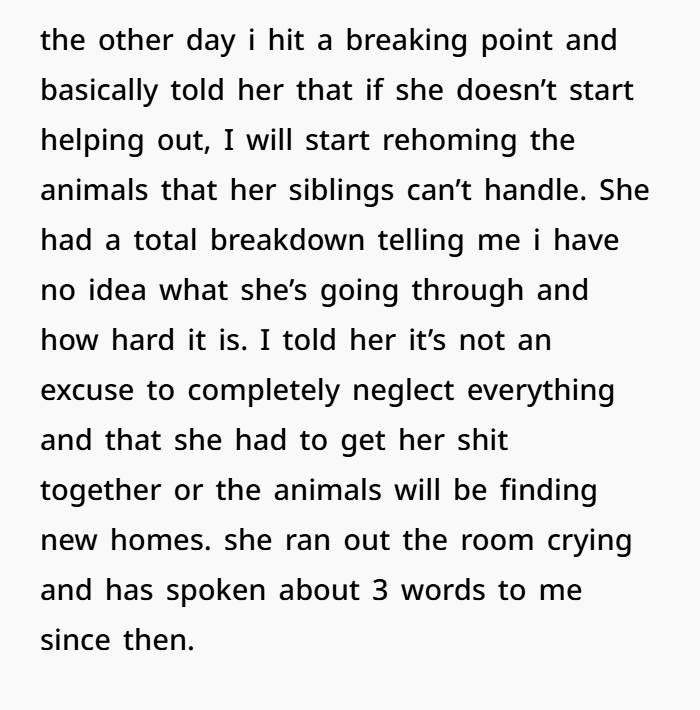

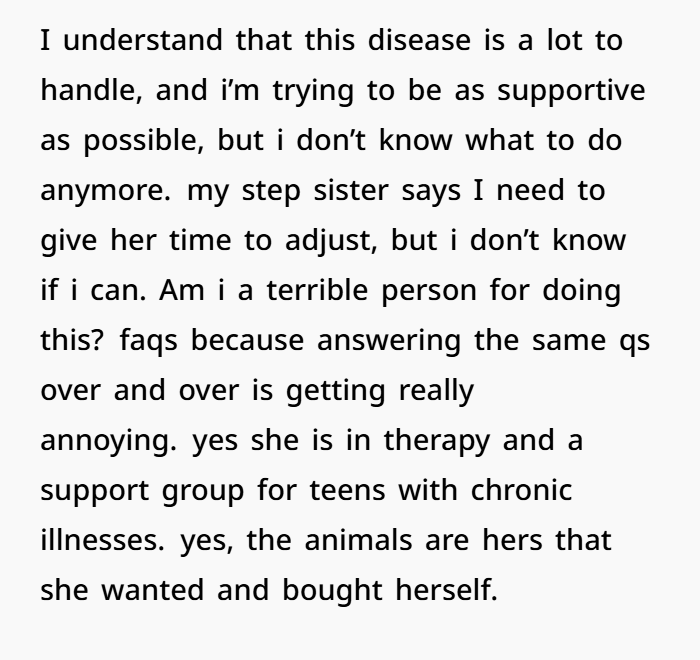

Chronic Illness, Responsibility, and Empathy
1. The Psychological Impact of Chronic Illness
Receiving a type 1 diabetes diagnosis is life-altering, with the condition requiring continuous management. On top of that are the physical demands of tracking blood sugar, taking insulin and dealing with exhaustion; but the emotional toll can be huge too. Referring to a slew of studies in the Journal of Pediatric Psychology, Song noted that depressed and anxious adolescents with chronic illnesses experience withdrawal and isolation as well.
Because of the diagnosis, along with the pressures of being a teen, OP’s daughter might have rewired her emotional circuitry to the point where she was too burnt out to complete tasks that may be second nature to others (like helping and caring for animals or maintaining grades.)
2. Balancing Support with Accountability
The mom is right to be frustrated, but it is important she allow her daughter time to adapt. Animals need to be cared for and grades need to be maintained, both responsibilities that were required before the diagnosis and leaving these undone is an additional burden on the family. Yet, describing her daughter’s illness as “not an excuse,” could sound a bit disrespectful of the immense challenges she’s faced.
A more constructive approach could involve:
- Incremental Responsibility: Gradually reintroducing tasks rather than expecting a sudden return to normalcy.
- Clear Communication: Acknowledging her daughter’s struggles while outlining the impact of her actions on the household.

3. Rehoming Animals: Tough but Necessary?
While it may sound extreme, the idea of rehoming rescues is not, in and of itself, unreasonable if someone is unable to care properly for the animal. But framing this decision around her daughter’s conduct may fuel guilt and anxiety. Perhaps OP could present it more like a decision made by the family on behalf of the animals and what is best for them, instead of just a punishment for her daughter?
4. Support Systems and Resources
It is important that OP’s daughter is in therapy and a support group – always a good sign that the individual is wanting the best for themselves. OP herself could probably use some additional resources as well; she could reach out to something like JDRF (Juvenile Diabetes Research Foundation) for advice and support for families living with Type 1 diabetes. More than that, getting involved with a parents’ support group for people with chronically ill children might also give OP some perspective, as well as some tools, for dealing with this.
Many people thought the mom was too harsh
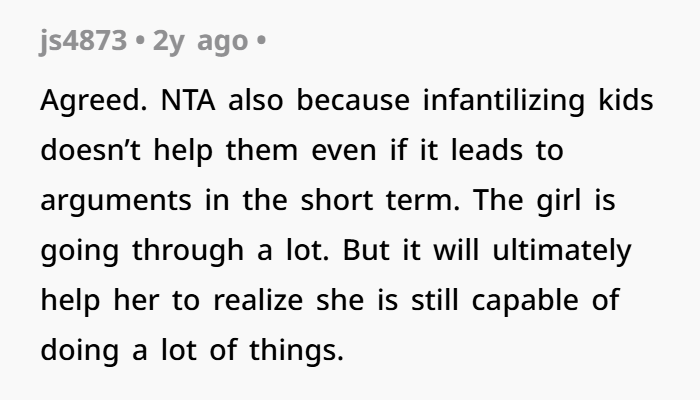
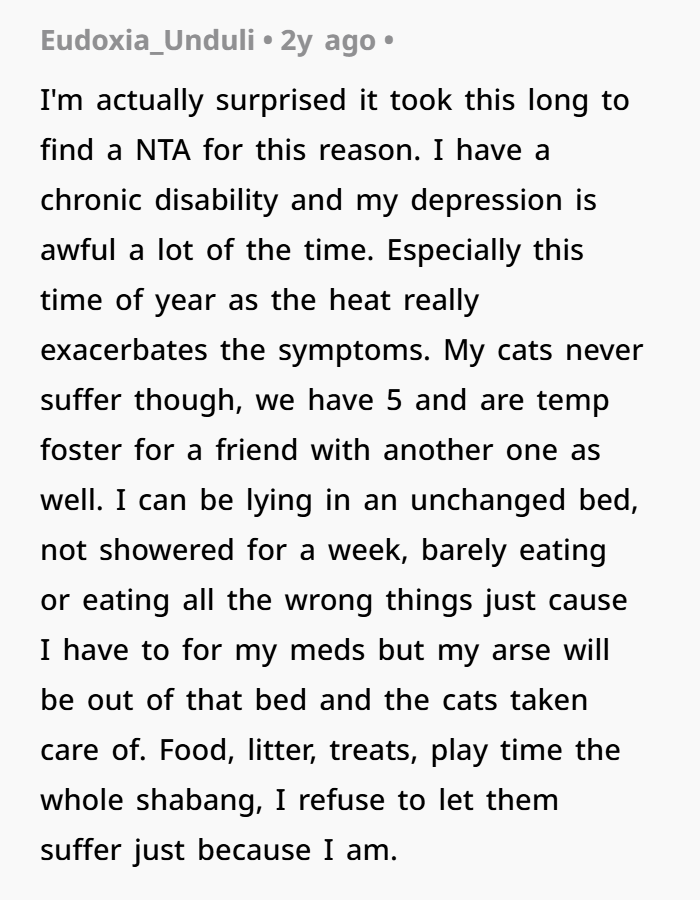
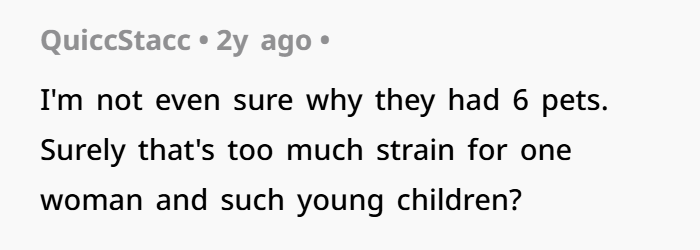
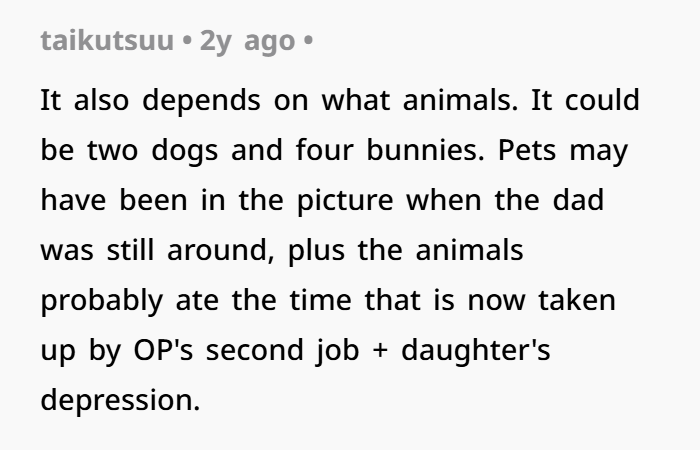
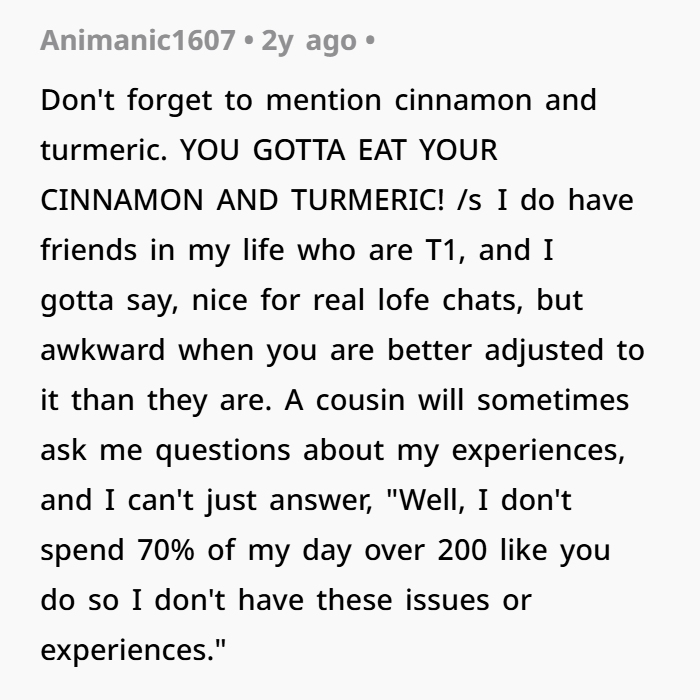
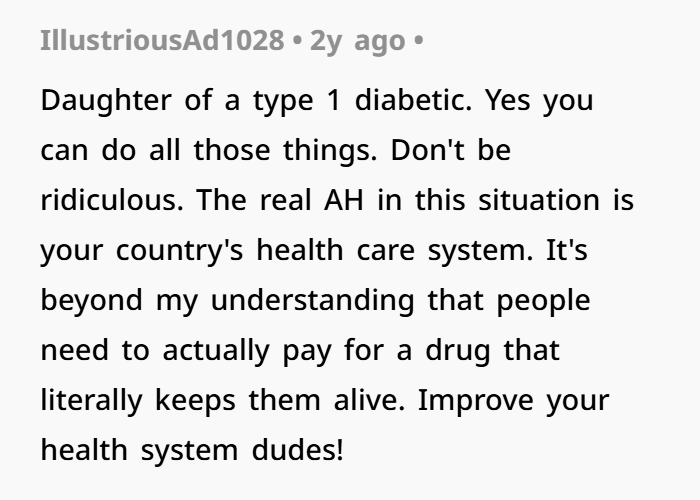
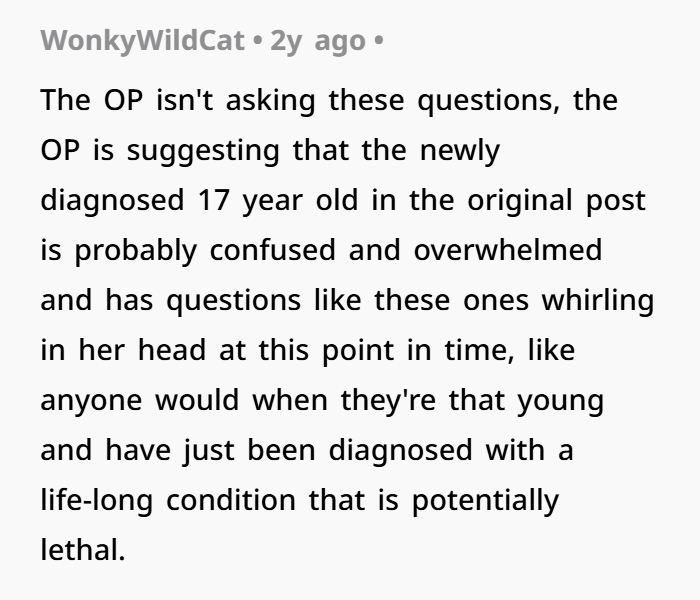
So on one level OP is not wrong to expect some kind of contribution, and that would be perfectly fine under other circumstances, and putting something in the pantry and fridge for the daughter of course does not mean to pay for her stay — but somewhat more empathy, patience and even just understanding for this adjustment phase is something OP’s daughter seems to need. A diagnosis of type 1 diabetes is a lot to handle over time and takes time, support, and understanding to deal with.
Instead of calling her daughter out on neglect, OP need to be slowly getting back into the loop, talking to her, looking for alternative help, outside resources to help that family. With kindness but firmness, OP can give her daughter the tools to ready herself for her new world while still having a peaceful home.

